Top Rankings
Laurel Elementary School District ranks among the top 20% of public school district in Montana for:
Category
Attribute
Community Size
Largest student body (number of students) (Top 1%)
For the 2025 school year, there is 1 public preschool serving 152 students in Laurel Elementary School District.
Public Preschools in Laurel Elementary School District have a diversity score of 0.26, which is less than the Montana public preschool average of 0.40.
Minority enrollment is 14% of the student body (majority Hispanic), which is less than the Montana public preschool average of 23% (majority American Indian).
Overview
This School District
This State (MT)
# Schools
4 Schools
395 Schools
# Students
1,204 Students
65,251 Students
# Teachers
82 Teachers
4,856 Teachers
Student : Teacher Ratio
15:1
15:1
District Rank
Laurel Elementary School District, which is ranked within the bottom 50% of all 347 school districts in Montana (based off of combined math and reading proficiency testing data) for the 2021-2022 school year.
Overall District Rank
#234 out of 350 school districts
(Bottom 50%)
(Bottom 50%)
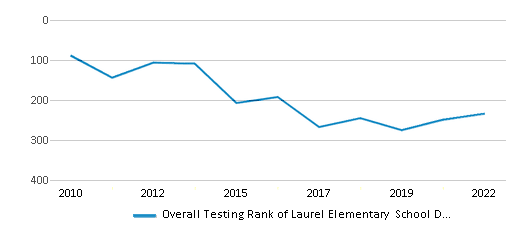
Math Test Scores (% Proficient)
30%
35%
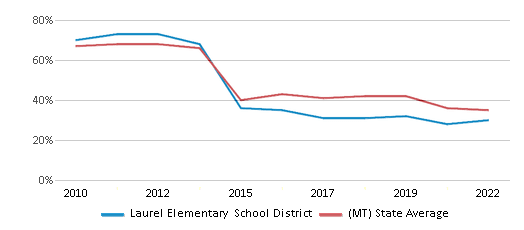
Reading/Language Arts Test Scores (% Proficient)
37%
46%
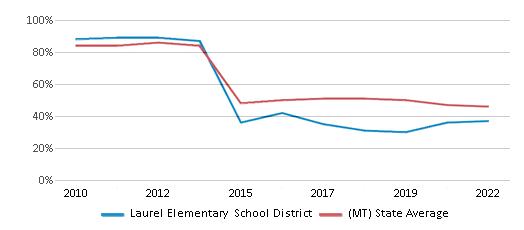
Science Test Scores (% Proficient)
27%
37%
Students by Ethnicity:
Diversity Score
0.23
0.40
# American Indian Students
24 Students
6,505 Students
% American Indian Students
2%
10%
# Asian Students
2 Students
357 Students
% Asian Students
n/a
1%
# Hispanic Students
78 Students
4,243 Students
% Hispanic Students
7%
6%
# Black Students
2 Students
459 Students
% Black Students
n/a
1%
# White Students
1,056 Students
50,046 Students
% White Students
88%
77%
# Hawaiian Students
1 Student
111 Students
% Hawaiian Students
n/a
n/a
# Two or more races Students
41 Students
3,530 Students
% of Two or more races Students
3%
5%
Students by Grade:
# Students in PK Grade:
7
1,059
# Students in K Grade:
145
11,907
# Students in 1st Grade:
133
10,512
# Students in 2nd Grade:
131
10,623
# Students in 3rd Grade:
118
9,606
# Students in 4th Grade:
119
9,406
# Students in 5th Grade:
133
8,220
# Students in 6th Grade:
138
3,620
# Students in 7th Grade:
134
158
# Students in 8th Grade:
146
140
# Students in 9th Grade:
-
-
# Students in 10th Grade:
-
-
# Students in 11th Grade:
-
-
# Students in 12th Grade:
-
-
# Ungraded Students:
-
-
District Revenue and Spending
The revenue/student of $14,316 in this school district is less than the state median of $15,263. The school district revenue/student has stayed relatively flat over four school years.
The school district's spending/student of $13,703 is less than the state median of $15,352. The school district spending/student has stayed relatively flat over four school years.
Total Revenue
$17 MM
$2,285 MM
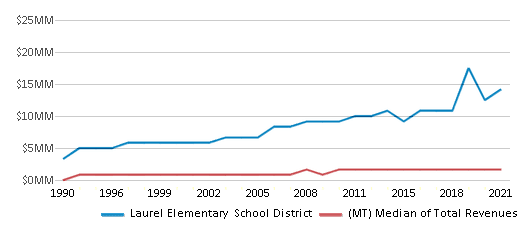
Spending
$17 MM
$2,298 MM
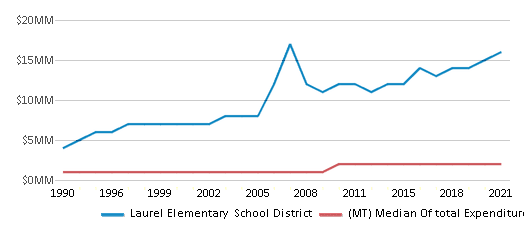
Revenue / Student
$14,316
$15,263
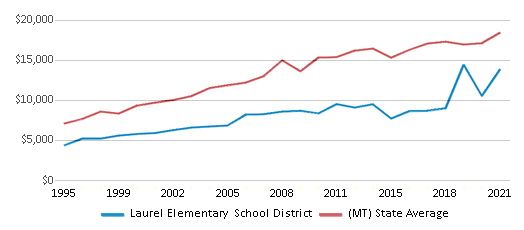
Spending / Student
$13,703
$15,352
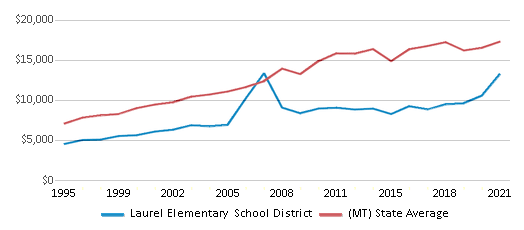
Best Laurel Elementary School District Public Preschools (2025)
School
(Math and Reading Proficiency)
(Math and Reading Proficiency)
Location
Grades
Students
Recent Articles

What Is A Charter School?
Explore the world of charter schools in this comprehensive guide. Learn about their history, how they operate, and the pros and cons of this educational innovation. Discover key facts about charter schools, including admission policies, demographics, and funding, as well as what to look for when considering a charter school for your child.

10 Reasons Why High School Sports Benefit Students
Discover the 10 compelling reasons why high school sports are beneficial for students. This comprehensive article explores how athletics enhance academic performance, foster personal growth, and develop crucial life skills. From improved fitness and time management to leadership development and community representation, learn why participating in high school sports can be a game-changer for students' overall success and well-being.

February 05, 2025
Understanding the U.S. Department of Education: Structure, Impact, and EvolutionWe explore how the Department of Education shapes American education, from its cabinet-level leadership to its impact on millions of students, written for general audiences seeking clarity on this vital institution.





